WHAT IS A HEADACHE?
Headaches are unpleasant pains in your head that can range from mild to severe and usually occur on both sides of the head.
Areas, where headaches can occur, include the forehead, temples, and back of the neck.
The headache can last from 30 minutes to a week.
According to the Mayo Clinic, the most common type of headache is a tension headache.
Triggers for this type of headache include stress, lack of sleep, muscle spasm, anxiety, and eye strain.
WHAT ALL KINDS OF HEADACHES THERE ARE
1. HEADACHE CLUSTER
Cluster headaches are extremely debilitating, painful headaches that occur on one side of the head and come in series.
It is characteristic that these are attacks of strong, that is, very strong pain.
This means that you experience headaches in cycles, followed by periods without headaches.
The pain develops very quickly, and in ten minutes it reaches its full strength.
It causes anxiety, so those who have this type of headache cannot stay calm, they mostly walk around.
Cluster headaches usually occur between the ages of 20 and 40 and are three times more common in males.
There are episodic, ie occasional and chronic cluster headaches.
Episodic or occasional cluster headaches are a more common form of cluster headaches.
They appear in the same period every year, much more often in spring or autumn.
Some people have two or three series of attacks each year.
Chronic cluster headaches occur in every tenth patient with cluster headaches. The pain is chronic, and daily or almost daily attacks continue from year to year, without a break.
Episodic cluster headaches can turn into chronic, and vice versa.
The diagnosis is made based on the history of the disease, as well as the diagnosis, and the treatment is based on the use of medication.
Why a cluster of headaches occurs has not been revealed so far. Alcohol, even in small amounts, can be a trigger.
2. SINUS HEADACHES
Sinus headaches occur due to inflammation of the sinuses - the so-called. Sinusitis.
It is a constant pain in the face, in the area of the cheeks, forehead, and the area around the eyes. It usually occurs on one side.
The pain worsens when moving the head, and even due to temperature changes.
Sinus headaches can last for a long time, this happens when the trapped mucus is infected with bacteria, or if your sinuses are often swollen due to allergies.
It is important, for sinus headaches, to work on strengthening the immunity, but of course also on the fight against inflammation.
Steam inhalation is the best medicine for sinusitis, and if you add a few drops of eucalyptus essential oil, it will help you even more.
You should drink more fluids, which helps hydrate the body. Teas are definitely a good choice.
3. CHIARI HEADACHE
Chiari headaches are caused by a congenital defect known as Chiari malformation, in which we find the movement of certain brain structures into the spinal canal, often causing pain in the back of the head.
The disease varies from mild to life-threatening.
Symptoms include dizziness, difficulty seeing, nausea, headache, and more.
Many people with a mild Arnold-Chiari malformation do not feel symptoms and the diagnosis is often made accidentally, during testing due to some other ailments.
The treatment is surgical.
4. THUNDER HEADACHE
A lightning headache is a very severe headache that develops in 60 seconds or less.
The pain comes without any announcement, like lightning.
It can last from one hour to ten days.
If it is suspected that it is a lightning headache, neuroradiological diagnostics should be performed to exclude intracranial vascular anomalies.
Cerebral aneurysm rupture and cerebral hemorrhage are manifested by severe headaches just like thunder headaches.
If you feel a headache of this kind, you need to call an ambulance immediately.

WHAT IS A MIGRAINE?
These headaches are intense, severe, and often have symptoms other than headaches.
Migraine symptoms include:
Nausea
Vomiting
Pain behind one eye or ear
Temporary vision loss
Temporal pain
Seeing smudges or flashing lights
Sensitivity to light or sound
Some people may feel a headache so severe that they seek emergency help.
Migraine headaches usually affect only one side of the head, but it can affect both sides of the head.
Due to its intensity, migraine headaches can make it difficult to perform daily tasks.
Migraine headaches are usually divided into two categories:
migraine so from
and migraines without aura.
Aura is a complex of neurological symptoms that usually appear before the headache, 10 to 30 minutes before the attack.
Symptoms may include:
The feeling of difficulty thinking
Seeing flashing lights or unusual lines
The feeling of tingling or numbness on the face or hands
Unusual smell, taste, or touch
Some migraine sufferers may experience symptoms for a day or two before the actual migraine occurs.
These subtle signs may include:
Prison
Depression
Frequent yawning
Irritability
Neck stiffness
An unusual craving for food
People who experience migraines report various causes that are related to them.
These are called migraine triggers and can include:
Emotional anxiety
Hormonal changes
Contraception
alcohol
menopause
RELAXATION TECHNIQUES AS A WAY TO RELIEVE HEADACHE
Since most headaches are caused by stress, taking steps to reduce stress can help alleviate headaches, and reduce the risk of future headaches.
Steps to alleviate and reduce the risk of headaches include:
Heat therapy, eg hot shower
Massage
Meditation
Stretching the neck
Relaxation exercises
For prevention, it is important to make changes in the diet.
Migraine is certainly difficult to distinguish from other types of headaches.
You can take care of many types of headaches yourself, but some headaches require quick medical care.
Here are some warning signs when you need to worry when it comes to headaches:
Unusually severe headache
Headaches that occur suddenly, especially if you wake up
Headache that increases with coughing or movements
Headaches that are constantly getting worse
Headaches that first develop after the age of 50
Changes in personality or mental function
Headache accompanied by fever, stiff neck, confusion, decreased memory, or neurological symptoms such as visual disturbances, numbness, or seizures
Headaches that accompany a painful red eye
Headache after a blow to the head
Headache that prevents normal daily activities
Headache in patients with cancer or a weakened immune system
FOOD HELPS REDUCE THE INCIDENCE OF MIGRAINES
Some people who have frequent migraines find that avoiding certain foods can help alleviate some of their headaches.
For others, consuming products high in magnesium, riboflavin and omega-3 fatty acids (spinach, whole grains, almonds, salmon) helps reduce the incidence of migraines.
Home remedies are also essential oils that are used to treat migraines and other types of headaches. Other home remedies include basil oil, buckwheat, flaxseed, and others.
Consult a doctor before using any home remedy.
Medications can relieve migraines and other types of headaches; people often use complementary and alternative treatments to relieve pain.
Stress is known to cause some of the most common types of headaches, so scientists have studied alternative treatments aimed at reducing stress, and found that they often have a fighting effect.
Some people include acupuncture, massage, herbs, and diet, while others do not.
Some tried and tested methods for treating headaches include:
Stress control
Acupuncture
Massage
Plants
Aromatherapy
Dietary changes, etc.
Life circumstances that increase stress, anxiety, and depression are associated with chronic migraines and other headaches.
Studies show that headaches will be relieved by a combination of stress management options and the use of some antidepressants.
Regular relaxation practices, getting enough sleep, and eating a healthy diet can help.
Acupuncture to relieve headaches
In the ancient Chinese technique/acupuncture/, small needles are inserted into points on your body.
They say it helps relieve headaches by correcting energy imbalances and making your body more able to resist or overcome the disease.
Research shows that acupuncture can cause your body to release pain-blocking chemicals, such as endorphins.
Acupuncture seems to help with a variety of health problems.
Acupuncture is a unique treatment for pain and its effect can be long-lasting.
Massage can relieve headaches
Clinical trials have not shown convincing evidence that massage cures headaches, but it is a great way to reduce stress and relieve tension.
It especially helps to relax muscles, such as those in the back of the head, neck, and shoulders and increases blood flow in those parts.
For some people, massage can relieve headaches caused by muscle tension.
Aromatherapy for the treatment of headaches
In the type of treatment/aromatherapy/, you inhale essential oils or rub them on the skin to help you relax and change the way you feel pain.
Many people say that lavender, ginger, or mint oils can help relieve headaches and tension.
More research is needed to know how well this therapy works.
Also, be careful when applying the oil on the skin, as some of them can lead to irritation.
Dietary changes as a way to treat headaches
Certain foods, such as chocolate, hard cheese, citrus fruits, etc., can cause headaches in some people.
If this is the case for you, try to recognize it and avoid food-related headache triggers.
The same goes for other things that trigger headaches, including stress, lack of sleep, and fatigue.
Some have found that people who ate less fat had fewer migraines.
Others suggest adding omega-3 fatty acids to your diet.
Supplements that could help include magnesium, riboflavin, coenzyme Q10, and melatonin.
Again, more research is needed to find out if they are safe and effective for treating headaches.
It is best to have a balanced diet, not to skip meals, not to eat fast, because all that can, if you do not adhere to it, encourage migraine.
Talk to your doctor before starting a new diet or taking new medications, including vitamins, herbs, and supplements.
Many people occasionally suffer from headaches and wonder how to get rid of them quickly.
The way to stop a headache quickly depends on what caused it.
Many causes of headaches or triggers are associated with dehydration, high blood pressure, tense neck and shoulder muscles due to physical or emotional stress, or reactions to foods, additives, medications, or chemicals that trigger inflammatory reactions.
To solve the headache, you need to see what the cause is.
Additional tips for treating headaches and migraines
> Caffeine for the treatment of headaches and migraines
Many headaches react to caffeine - a cup of tea or coffee with caffeine can often be used to relieve headaches.
Cluster headaches and migraines are most responsive to caffeine.
> Hydration to solve headaches
If you get a headache, first try to get more water into your body. This helps because dehydration is a common cause of headaches.
This is especially useful to get rid of headaches that result from eg drinking alcohol, hangover headaches.
Packages of powdered drink mixes, such as those mixed with vitamin C, are good options.
If you have diabetes, it is important to look carefully at the sugar content of the drink.
> Essential oils, herbs, and vitamins for headaches
Essential oils, herbs, and vitamins that soothe and relieve headaches.
Headaches can sometimes be cured naturally. Herbal remedies can help people who often have headaches or migraines.
> Yoga is also effective against headaches
One study showed that yoga can be effective against headaches.
The practice of yoga included breathing techniques (pranayama) and holding yoga (asana).
Simple stretching can also help with headaches.
> Self-massage for headache
Self-massage around the temple, shoulders, and the back of the head can help with tension in headaches.
Massage, whether just a massage or working with a massage therapist, can relieve chronic tension in the neck and shoulders that can cause headaches.
> Acupuncture for headaches and migraines
Acupuncture can be effective for certain headaches, such as chronic headaches and migraines.
An acupuncturist will evaluate the type of headache with a diagnosis of traditional Chinese medicine and treat the headache with needles in certain places along the energy meridians.
> Exercise to combat headaches
Regular exercise, especially walking, running, or swimming can reduce the frequency and severity of headaches.
Stay well hydrated after exercising!
> Meditation or rest can stop a headache or migraine.
Lying in a darkened room for 15 minutes can often stop a headache or migraine.
Meditation, a practice of relaxation, has been shown to reduce several types of headaches in several research studies.
Spiritual meditation is most effective in reducing migraines.
> Magnesium can reduce headaches and migraines
Magnesium relaxes blood vessels and can reduce headaches.
It can be given intravenously to stop a migraine or headache.
Taking an oral magnesium supplement can prevent headaches.
It is best to take it before bed.
> Vitamin B prevents headaches
Riboflavin (vitamin B2) is effective in preventing some headaches.
WHAT FOODS CAUSE HEADACHES?
Headaches in some people can be activated by certain foods that cause the release of histamine.
Intake of certain foods is often the cause of cluster headaches.
Foods that trigger the release of histamine may include:
Canned or highly processed foods
Canned beans and meat
alcohol
Smoked fish and meat
Beans
Chocolate
Another category of food that can activate a headache is a food rich in tyramine.
Some people have a deficiency of an enzyme that breaks down tyramine and other amines.
In this situation, too much food rich in tyramine overwhelms the enzyme and causes headaches.
Foods rich in tyramine include:
hard cheeses
delicatessen
beer, especially on tap
black wine
sour cabbage
soy you are
miso supa
so
Salt can cause headaches because it leads to fluid retention and high blood pressure.
Salt is added to most packaged and processed foods, so it is best to avoid them.
Hidden sources of salt in the diet include:
Sir
Pickles
olive
Snacks like pretzels and chips
Sauce and salad dressings
WHAT REALLY WORKS - NATURAL HEADACHE REMEDIES
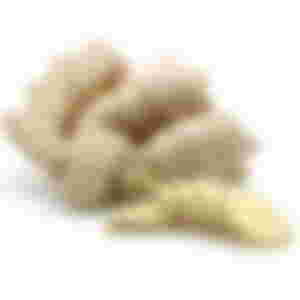
1. Ginger is a natural remedy for headaches
Known as an elixir against headaches, ginger is a natural remedy for instant relief. Helps reduce inflammation of blood vessels, thus relieving pain.
As it stimulates digestion, it also helps reduce nausea that occurs during migraines.
Chop 2 to 3 cm of ginger and pour over two cups of hot water. Let stand 30 minutes.
Drink tea every day as there are no side effects and it certainly helps with headaches.
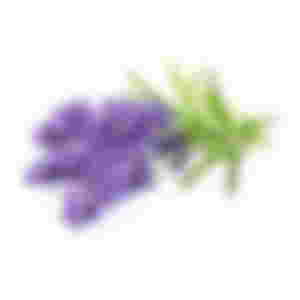
2. Peppermint oil and lavender oil for headaches
Peppermint Oil: With its refreshing scent, mint helps clog blood vessels that cause headaches. It contains menthol which helps regulate blood flow in the body.
Inhale the aroma calmly in a cold, darkroom. You can also massage the temples or the back of the neck.
Alternatively, you can apply crushed and chopped mint leaves on the forehead.
Make an herbal tea by adding 1 teaspoon of dried pepper to a cup of boiling water. Cover and let stand for 10 minutes.
Strain and add a little honey to sweeten it. Drink the tea slowly.
Lavender Oil: Not only does lavender have a wonderful scent, but it is also a great natural remedy for relieving headaches.
Simply inhaling the soothing scent of lavender essential oil helps, so you can just put a few drops on your skin and inhale it.
You can also add two drops of lavender oil to two cups of boiled water and inhale the steam.
Another option is to mix two or three drops in one tablespoon of almond oil or olive oil and massage your forehead with it.
You can even make a foot bath from lavender oil, because the warm water drains the blood into your feet, and the aroma relaxes you.

3. Cinnamon is one of the most effective natural remedies for headaches
Cinnamon is a miraculous spice, a source of manganese, iron, fiber, and calcium, which is known as one of the most effective headache remedies. Wondering how to use it?
Pour a tablespoon of cinnamon powder with a cup of hot water, and let it stand for about 10 minutes.
Sweeten to taste and drink during the day, but not more than three cups a day.
Cinnamon is a wonderful spice that can effectively treat headaches.
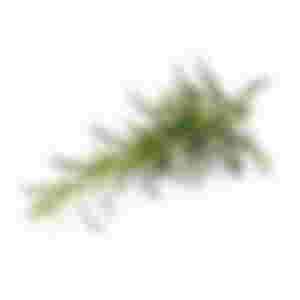
4. Thyme or rosemary essential oil to relieve headaches
To relieve the headache, drip a drop or two of essential oil of thyme or rosemary on the forehead. Rub lightly into the skin, and then sit quietly for a few minutes for this natural remedy to work.
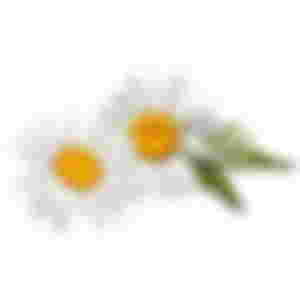
5. Chamomile helps relieve pain
Chamomile is known as a sedative that contains ingredients that help relieve pain and relax. It is one of the safest teas for headaches, and you can drink it every day.
Pour boiling water over the teabag and leave for 10 minutes. If desired, sweeten with honey and drink during the day.
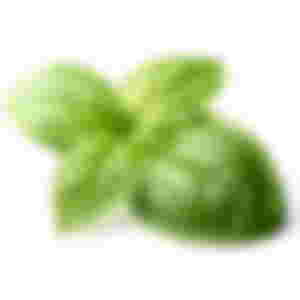
6. Basil is considered a natural remedy for headaches
Basil is a spicy plant with an intense scent, which is considered a natural remedy for headaches. It has numerous analgesic benefits. Basil oil relaxes muscles and helps relieve headaches caused by tense and cramped muscles.
You can also make tea from a few basil leaves spiced with a little honey and drink it slowly, chew fresh basil leaves, or inhale water in which you previously cooked basil.
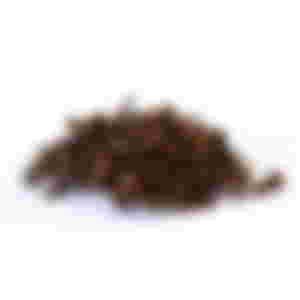
7. Clove to relieve headaches
Cloves can be used to relieve headaches due to their cooling and pain-relieving properties. Gently chop a few cloves and place them in a bag or clean cloth.
Inhale the scent of cloves every time you have a headache until relief comes.
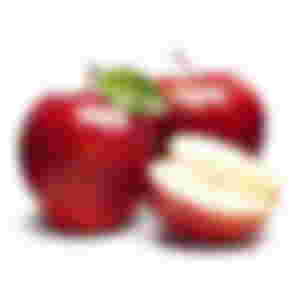
8. Apple to fight headaches
Both apple cider vinegar and apple cider vinegar can be used to fight headaches. They help restore the acid-alkaline balance in the body.
Mix half a teaspoon of apple cider vinegar with half a cup of water and boil the mixture.
Remove the pan from the heat, hold a towel over your head, and slowly inhale the steam.
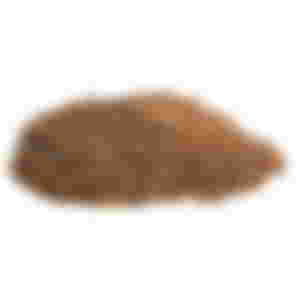
9. Flax seeds are a natural remedy for migraines
Flax seeds are a popular natural remedy against migraines, considering that most headaches are a consequence of inflammation. A diet rich in omega-3 fatty acids can reduce or eliminate headaches.
You can eat whole seeds or ground into a powder.
Flax seeds go well with almost any dish, salty or sweet, so it will not be a problem to include them in the daily menu.
10. Head and neck stretching exercises to reduce the intensity of the headache
A few simple exercises for stretching the head and neck can help you reduce the intensity of the headache.
Move your chin up and down, left and right, and bend your neck to the side towards each shoulder.
You can also try turning the neck slightly clockwise and counterclockwise to help the shoulder and neck muscles relax.
When a headache occurs, you know how to react.
A few simple exercises can help you reduce the intensity of your headache.
11. Heating or cooling?
Applying an ice pack to the back of your neck can relieve migraines, as ice helps reduce the inflammation that contributes to headaches.
Also, it has a stunning effect on pain.
Believe it or not, just dipping your feet in warm water also helps to get rid of headaches.
12. The power of prevention
Yoga combines physical postures, breathing exercises, and meditation to enhance relaxation.
It will direct your mind, stretch your muscles, and move you in ways that can help you reduce tension.
Practicing yoga regularly is the best thing you can do for yourself because prevention is better than cure.
CONCLUSION
Headache is the most typical type of pain that each of us has felt.
It can be mild or sometimes so strong that it can distract you from any task.
Therefore, it is very important to know how you can help yourself.
Breathing exercise is also a natural remedy for headaches.
You should go to the air and breathe deeply while exercising with your hands, which stimulates the exchange of gases.
Track your symptoms.
Keep a headache diary by describing each vision disorder or unusual observation, including when it occurred, how long it lasted, and what triggered it.
A headache diary can help your doctor diagnose your condition.
Make a list of any medications, vitamins, or supplements you are taking, including the amount.
It is especially important to list all the medications you have used to treat the headache.

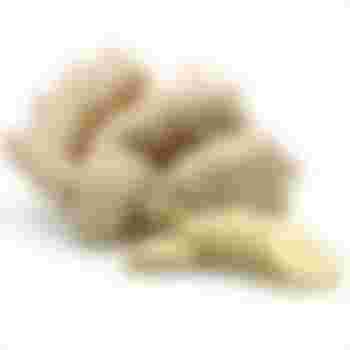
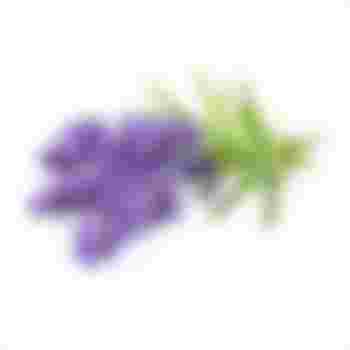

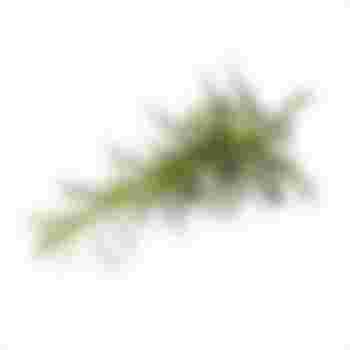
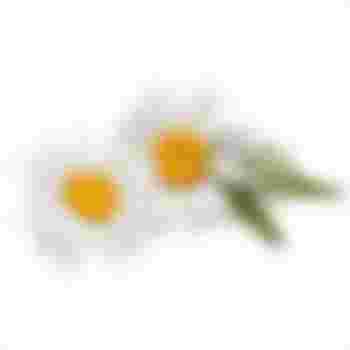
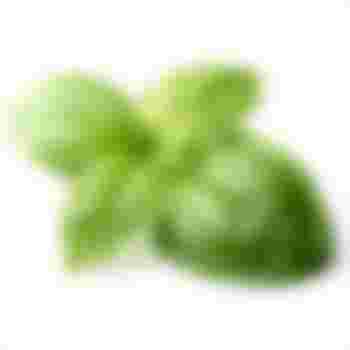
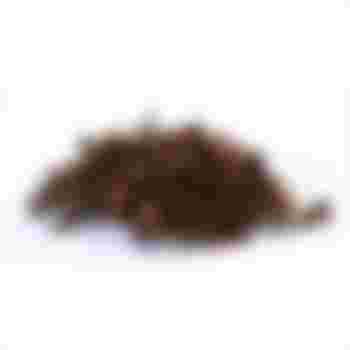
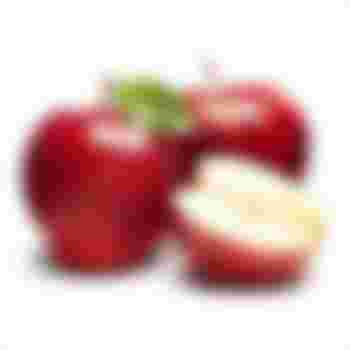
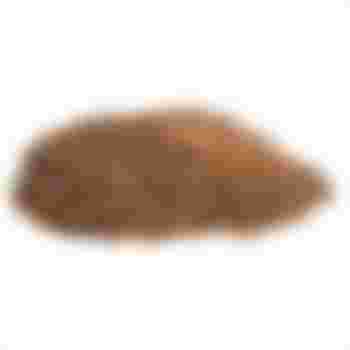
One man has a constant headache and that is why he wears a hat and in summer and winter, as soon as he takes it off, his head starts to hurt, a good article.